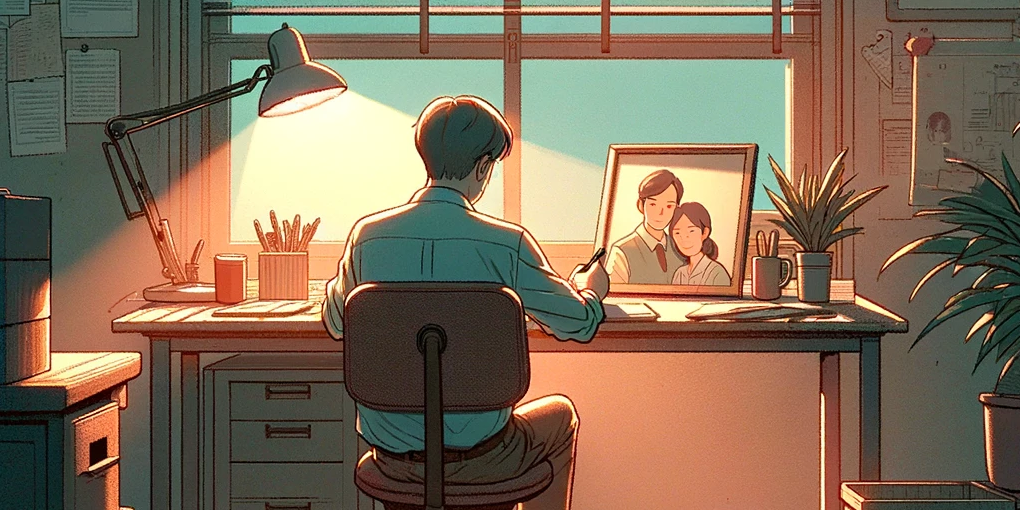
Going above and beyond
I was recently asked, what career advice would you give your 20-something self? A great question and it left me to reflect on the past 20 years of my career and the decisions I made along the way. To be honest, there are too many lessons learned to list here but the two answers which immediately came to mind were - 1) don’t burnout on somebody else’s company and 2) don’t sweat the small stuff.
I’ve always been the guy to go way above and beyond for my employer. Evenings and weekends building features? No problem. Urgent release needed while I’m on holiday? Let me get my laptop. Work through my annual leave to launch a new product? I’ll do it. I can’t say that attitude hasn’t brought benefits with it, when former colleagues were starting their new business they approached me to be CTO, and the same thing happened again when I was looking for my next challenge the same thing happened. I also learned a tonne along the way, picking up new skills and consistently stepping out of my comfort zone.
However, I can’t help but think about whether all of that extra work was really worth it. I didn’t own those businesses, job security wasn’t really a concern and all of that time adds up to time I could have been spending with family or on my own ventures. Most of all though, none of that software still exists. All of that toil to get over the latest hurdle, weekends lost at short notice, working to tight deadlines - what was it really for? The truth is that when those businesses eventually exited or failed the software carried on for a while but was eventually replaced or discarded.
Also, it took me a while to realise this, but those features that customers demand? Very rarely do they lead to further sales. In my experience what tends to happen is that everybody convinces themselves other customers will also love that feature but the reality is that customers come for the proposition, not specific features. Don’t get me wrong, some of the functionality delivered over the years was for high value customers that really moved the specific business forward, but I come back to my earlier point - I didn’t own those businesses.
I worked in one startup for 4 years before it eventually failed. We threw everything we could at the product from big ticket features to eventually a complete rebuild. I was all in on the project, determined to make it a success and happy to give up hundreds of hours of my own time to make it happen. Ultimately though, none of it really helped with growth, I eventually grew disillusioned and burned out pretty hard (along with several of my colleagues) as the business was liquidated. The real eye opener for me though was what happened after liquidation.
The business was eventually rescued out of administration and rebranded for the new owners. During the administration process I worked with the new owners on a freelance basis to ensure a smooth transition of the software though their long term strategy was to bring in an offshore technical team. No sooner did the new team get hands on with it than they rewrote the entire product (which had itself been rewritten one year earlier)! That’s where I learned my lesson about the short-lived and transient nature of the software we put out there.
The other thing that a long career in this industry gives you is a sense of perspective. I’ve been in the eye of the storm more times than I can count. A big customer is about to churn, a bug has made it to production, the app has gone down - all stressful situations. Once you’re through the storm though, the situation is forgotten as quickly as it flared up. Now when I look back to even a couple of years ago, I can’t remember the things that would have felt like the biggest thing in the world at the time and probably ended up with me working a weekend.
Honestly, a lot of the time the stress is entirely self-inflicted too. Customers may make a reasonable demand for something to be fixed, but usually honesty and transparency will create enough empathy for them to wait for a solution. Customers are undoubtedly the lifeblood of any software company and of course it is important to prioritise their needs, but usually your software is not as important to them as it is to you. So where is the pressure really coming from - customer demands or your own demands on having a product without defects?
In the fullness of time you realise your legacy is not defined by the software you created or your standing with your current employer. Pressure is often internal rather than external. So, the next time a major issue comes up on a Friday night and all eyes are looking at you - ask yourself what the real impact will be of that issue waiting until Monday? Then go and enjoy your weekend 😎